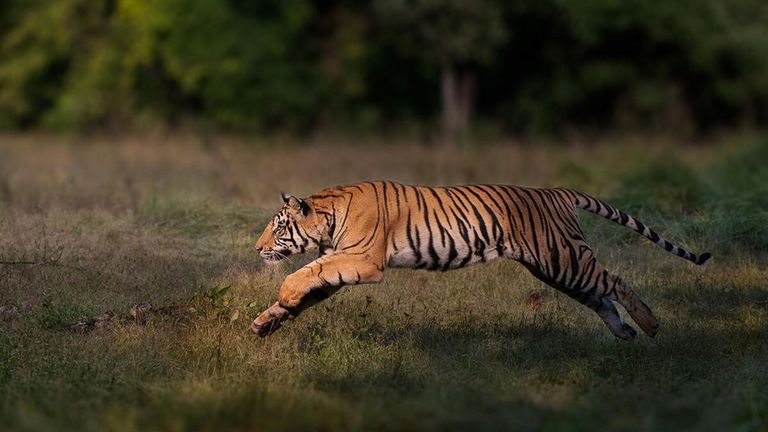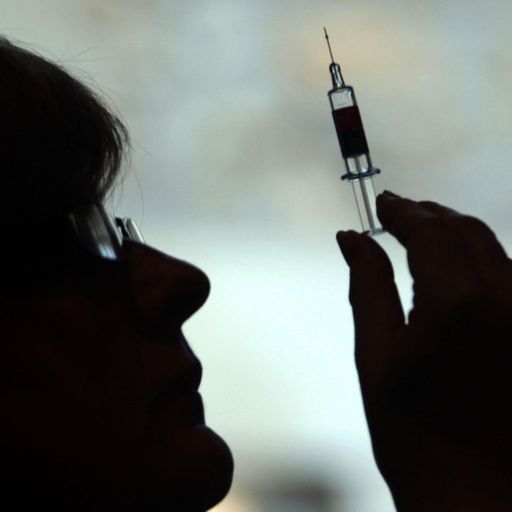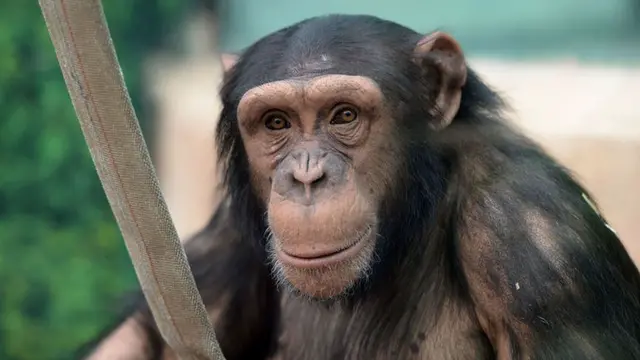Dozens of animal species that are in regular contact with humans could be vulnerable to infection with the strain of coronavirus that causes COVID-19, according to new research.
Domestic cats and dogs could be affected, as could mink, lions, and tigers - all of which have had reported cases - and ferrets and macaques, which have been infected in laboratory studies.
The animals could end up spreading the disease, or become reservoirs for the virus, re-introducing it to the human population in the future, say the scientists at University College London (UCL).

Image:Tigers have been infected with COVID-19
Researchers investigated whether mutations in the ACE2 enzyme in 215 other animals would prevent the
coronavirus
using it to enter into the cells, as it does in humans.
However, they found that for some animals, including sheep and great apes - from chimpanzees through to gorillas - the proteins would be able to bind together just as strongly as they do in humans.
With some of the animals, such as sheep, there have not been any infection tests to affirmatively prove that the animal can be infected.
UCL's Professor Christine Orengo said: "We wanted to look beyond just the animals that had been studied experimentally, to see which animals might be at risk of infection, and would warrant further investigation and possible monitoring."
"The animals we identified may be at risk of outbreaks that could threaten endangered species or harm the livelihoods of farmers," she warned.
"The animals might also act as reservoirs of the virus, with the potential to re-infect humans later on, as has been documented on mink farms."

This is the story of how coronavirus spread around the world
To investigate the animals, the researchers performed detailed structural analyses to see how infection risks differed across animal species.
They found that most birds, fish and reptiles didn't appear to be at risk of infection, but the majority of mammals they studied could potentially be infected with
COVID-19
.
Prof Orengo said: "The details of host infection and severity of response are more complex than just the interactions of the spike protein with ACE2, so our research is continuing to explore interactions involving other host virus proteins."
UCL's Dr Su Datt Lam, the study's first author, said: "Unlike laboratory-based experiments, the computational analyses we devised can be run automatically and rapidly.
"Therefore, these methods could be applied easily to future virus outbreaks that, unfortunately, are becoming more common due to human encroachment into natural habitats."

Race for the coronavirus vaccine
Professor Joanne Santini, also at UCL, said: "To protect animals, as well as to protect ourselves from the risk of one day catching COVID-19 from an infected animal, we need large-scale surveillance of animals, particularly pets and farm animals, to catch cases or clusters early on while they're still manageable."
"It may also be important to employ hygiene measures when dealing with animals, similar to the behaviours we've all been learning this year to reduce transmission, and for infected people to isolate from animals as well as from other people," she added.
 简体中文
简体中文














